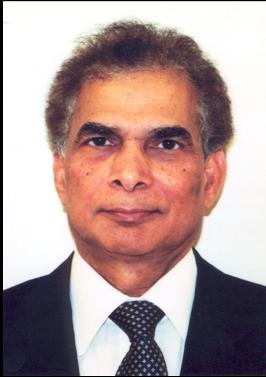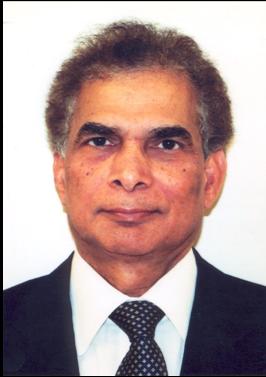
Credit: ASIP
Dr. Janardan K. Reddy, Professor Emeritus of Pathology at Northwestern University, is this year's recipient of the American Society for Investigative Pathology (ASIP) Gold-Headed Cane Award. This award, a mahogany cane with a 14-karat gold head and engraved band, is the most definitive honor granted by ASIP to a member in recognition of long-term contributions to pathology, including meritorious research, outstanding teaching, excellence in the field, and leadership in pathology.
Janardan Reddy was born and raised in India, where he completed his undergraduate and medical degrees and pathology residency training. Dr. Reddy subsequently moved to the United States and completed residency and research fellowships at the University of Kansas Medical Center. In 1970, Dr. Reddy joined the faculty at KUMC and was promoted to Associate Professor within three years. Only three years later, he was made full Professor, by which time he had already published 66 research articles in prestigious journals, including Nature, Science, Journal of Cell Biology, The American Journal of Pathology, Laboratory Investigation and Cancer Research. In 1976, Dr. Reddy accepted a position as Professor in the Department of Pathology at Northwestern University, where he has spent the remainder of his illustrious career. He was subsequently named Chairman of Pathology in 1993, a position he held for many years, and is currently a Professor Emeritus of Pathology.
In his nearly 50-year career as a pathologist, investigator, leader and teacher, during which he achieved senior status in academic pathology, received acclaim for his research related to liver biology and in particular the field of peroxisomes and carcinogenesis, and participated in many international symposia, Dr. Reddy has demonstrated all the hallmarks of a world-recognized academic pathologist. He and his colleague, Dr. Sambasiva Rao, discovered that peroxisomal proliferation can be achieved by a variety of agents, including hypolipidemic drugs, and thus linked their biology to lipid metabolism — an impetus for the discovery of the peroxisomal beta-oxidation system. Dr. Rao stated that "in the last 30 years, no other single scientist contributed more to the understanding of peroxisome biology and peroxisome proliferator-induced hepatocarcinogenesis than Dr. Reddy; he has been universally recognized as a pioneer in this field." He described Dr. Reddy as "a man of reason, unaffected by power and achievements and always willing to help and guide anybody that approaches him. [He] is a great teacher with a unique talent for simplifying complex problems."
Dr. Reddy has received many honors and awards for his work, among them the ASIP Rous-Whipple Award, which is presented to a senior scientist with a distinguished career in research who has advanced the understanding of disease and has continued productivity at the time of the award. He was awarded the Rous-Whipple Award in recognition of the work he started as a resident in pathology, studying a morphological phenomenon of proliferation of peroxisomes (then called microbodies) in liver cells; over the years, this work led to the identification of structurally diverse classes of chemicals — several lipid-lowering drugs, certain phthalate ester plasticizers used in the manufacture of polyvinyl chloride plastics, herbicides, and certain solvents — all of which exert similar effects. These are now called peroxisome proliferators, a designation Dr. Reddy and his lab introduced in 1975. Dr. Reddy demonstrated that despite their structural diversity, various peroxisome proliferators induce the development of liver cancer and act in a cell-specific manner by receptor-mediated mechanisms. He also identified a peroxisome proliferator-activated receptor (PPAR) subfamily that plays a pivotal role in lipid metabolism.
In addition to his research, Dr. Reddy has excelled in educating and mentoring students. His exceptional teaching and advocacy of medical students and the field of Pathology was formally recognized with the George H. Joost Award for Outstanding Basic Science Teacher, an award given to the best lecturer at Northwestern University Medical School, which he received twice. According to one of his protégés, Dr. David Engman, "the very best mentors develop personal connections with their mentees. This is Dr. Reddy's greatest attribute. He met with each of us faculty members individually in formal meetings every six months and informally much more often…with an aim to support us, not only for promotion and tenure, but for becoming successful and developing national reputations in our respected areas."
In summary, Dr. Reddy is considered a world leader in many research areas related to liver biology and pancreatic/hepatic differentiation. . He has authored over 400 research articles, reviews and book chapters, which his associate, Dr. Satdarshan Paul S. Monga, extols as a demonstration of the tremendous impact his work has had on the field.
Dr. Reddy will receive the Gold-Headed Cane Award at the ASIP 2018 Annual Meeting at Experimental Biology in San Diego, California on Monday, April 23 from 5:15 to 6:30 PM in Session Room 2 of the San Diego Convention Center.
###
Media Contact
Gina Laborde
[email protected]





